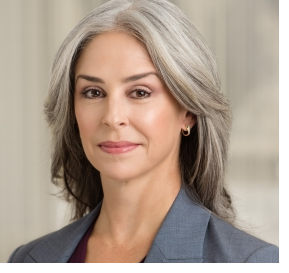How Entrepreneurs and Founders Can Avoid “Capital Tunnel Vision” – By Diane Johnston

As an entrepreneur or founder starting a business, you may think of capital as purely monetary. Capital is often viewed only as an opportunity for an infusion of money into a business to get it started or grow and scale your company.
Unfortunately, without a solid grasp of how capital — in its many different forms — can influence a business, too many founders make decisions early on in their companies that have unintended consequences down the line. This can negatively impact the growth of your business and hurt your chances for a healthy exit — whether you’re selling to a buyer or passing it on to the next generation.
Identify the right track for your goals
Entrepreneurs must align business goals and long-term objectives at the outset of founding their company in order to attract the right type or combination of capital to support success.
Starting a new business can be frenetic; as a founder, you may be charged with emotional determination to succeed. Many entrepreneurs leverage a uniquely laser-focused mindset to bring their vision into reality. As a new business begins to take shape, it is not unusual for the founder to accept outside sources of funds to support business growth. That often occurs after the dogged effort that got you to that point.
However, entrepreneurs can benefit from pausing before launching their company to define what types of capital would be ideal to achieve the overall goals and objectives they have for the business. For example, founders may benefit not only from having a vision for setting up the company but also from foresight in terms of how they intend to exit or pass on their business, which is often impacted by how they accept outside capital from inception.
To raise or not to raise?
Outside investment is not mandatory when starting a business. It’s a misconception that to IPO or exit successfully, you must have outside financing and investor capital. It isn’t even a priority for many new business owners: Institutional Investor reports that only 16% of 3,400 polled entrepreneurs want to go public.
Because many founders do not plan to exit with an IPO where outside financial capital would help reach that goal, it’s necessary to consider other options that may be better for the long-term health of the business. What’s often lost when capital raise decisions are made is that taking external funding shifts the ecosystem of your business. For example, an entrepreneur whose company offers a premium product or client experience may not decide to focus on operating lean and mean, but an outside investor may add pressure to hit operational efficiencies that do not align with the company’s goals.
It’s also often in the best interest of founders to make a strong effort to bootstrap for as long as possible. In other words, be wary of capital investments from a source that may shift control or dilute objectives.
Taking outside financial capital can impact your company’s capital table or ownership structure, and it can increase pressure to perform in areas you otherwise might not have defined as fundamental to long-term success. This can be destructive to company value.
Find the right capital combination
When you think about capital, don’t be constrained by its traditional monetary form. There are non-monetary ways to interpret what is of value to a business — whether it is in the form of human, social, intellectual, reputational, operational or cultural capital.
It’s a best practice to consider that embracing several types of capital may lead to better outcomes. Finding the right combination of two or three types of capital that are critical to achieving milestones can serve as an investment in and of itself.
For example, in a client-centric business, human capital and reputational capital are a winning combination. Focusing on those areas is more likely to lead to growth than taking on an outside investor who expects cost-cutting measures to improve profit.
Considering different forms of capital not only helps to pinpoint what may help the business succeed, but also whether the business model is sustainable. Also, it can inform natural synergies or strategic partnerships.
For example, it can be next to impossible to acquire cultural capital — such as deep relationships and reputational strength — but intellectual capital (like patents) or operational capital (such as a similar business with stronger short-term cash flow) could be harnessed from a strategic investor or acquired at the appropriate time. So, defining what modes of non-monetary capital are critical and unique to the business can help determine where and when taking an outside investment makes sense.
Your company may require outside capital in various forms over the course of your journey and in different economic cycles. However, be acutely aware that accepting outside investors can have long-term consequences that might take the business in a different direction if not aligned with the business owner’s goals and objectives as defined from the get-go.
Options like bootstrapping can help a founder retain control and look more creatively for ways to reinvest back into the business to expand or grow, while protecting control, ownership interest, and the non-financial capital that is the company’s secret sauce. Also, diversifying the type of capital you acquire — whether human, intellectual or other — can help you build your business in a way that truly meets your vision and creates durable wealth.
ABOUT:
Diane Johnston
Senior Vice President of Wealth Management, Institutional Consultant, and Financial Advisor at UBS.
https://advisors.ubs.com/excelsiorconsultingteam/Meet-the-team.htm



